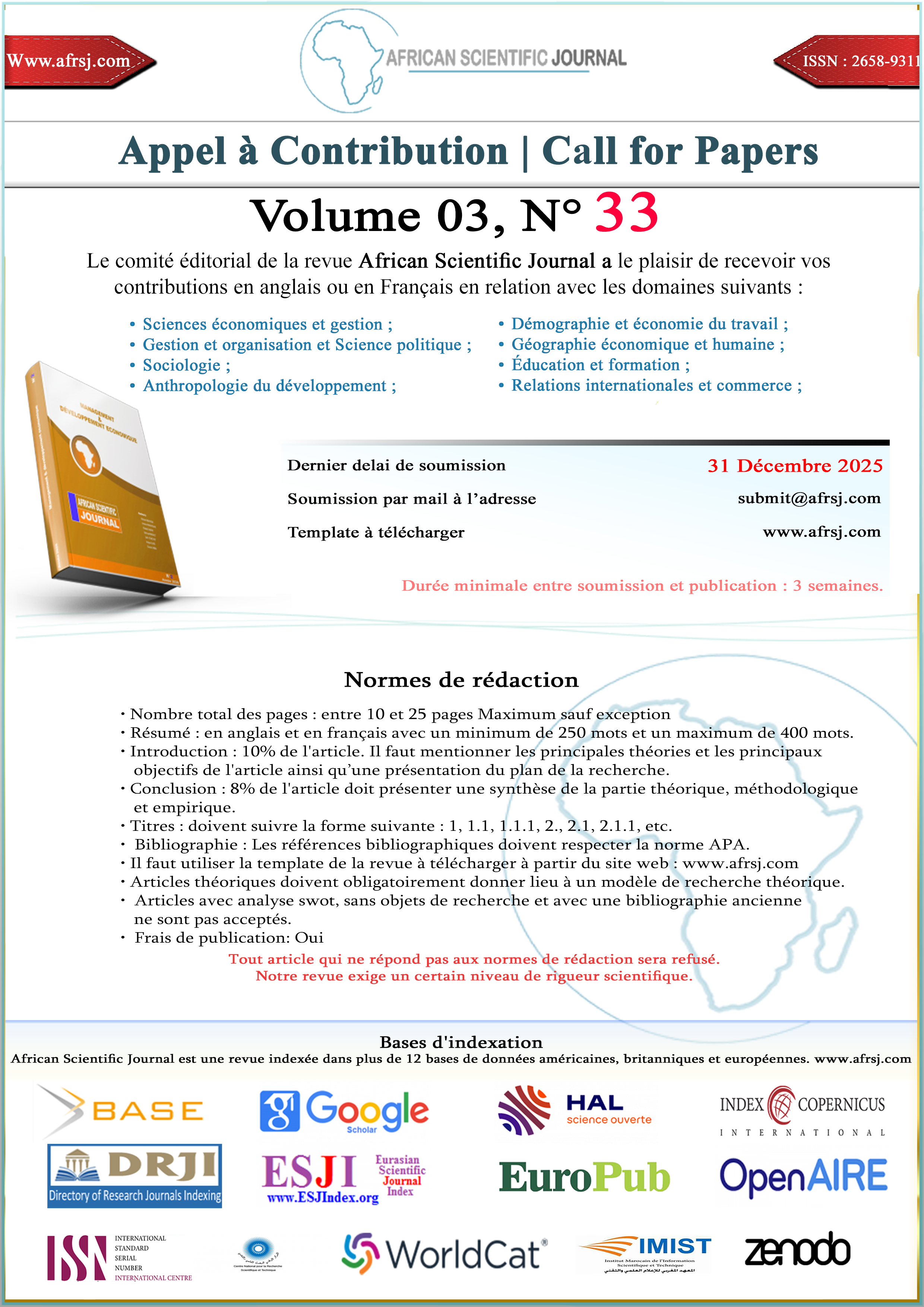The effect of cap and trade policy on the economy, welfare and renewable energy for the Moroccan case: a partial equilibrium approach
DOI:
https://doi.org/10.5281/zenodo.8189017Keywords:
Emissions, Partial equilibrium model, Cereals market, Energy, Cap and trade, Renewable energiesAbstract
In this paper, we are interested in cap-and-trade policy, or the implementation of pollution permits, as a mean to decrease CO2 emissions, which is the main cause of global warming, for the case of Morocco. To do so, we used a partial equilibrium model for the cereals market and the energy sector by simulating three scenarios of total emissions caps, namely a 1% decrease in emissions, a 5% decrease and a 7.5% decrease. We used this approach because we are concerned with one market, namely the cereals market and after designing the model wich is a system of equations capturing the interactions between fossil energy, renewable energy and cereals market, we log-linearized the model that we solved using matrix algebra with Octave. The results show that these forced emissions decreases have a very small effect on the decrease in income representing households welfare, remaining the same even in the 7.5% decrease scenario, as well as an increase in solar energy production and consumption. Therefore, a cap and trade system with a reasonnable cap will reduce emissions without affecting that much households welfare, while encouraging renewable energy production at the same time.
Downloads
Published
How to Cite
Issue
Section
License
Copyright (c) 2023 African Scientific Journal

This work is licensed under a Creative Commons Attribution-NonCommercial-NoDerivatives 4.0 International License.





















